7 So-Called Prebiotic Foods That Aren’t Doing Much And 9 That Actually Support a Healthy Gut

In the quest for a healthier gut, not all prebiotic foods deliver on their promises. While some foods boast of gut-boosting benefits, they may not be as effective as they claim. In this article, we explore seven foods often mistaken as potent prebiotics and nine that genuinely support gut health.
1. Flavored Yogurt
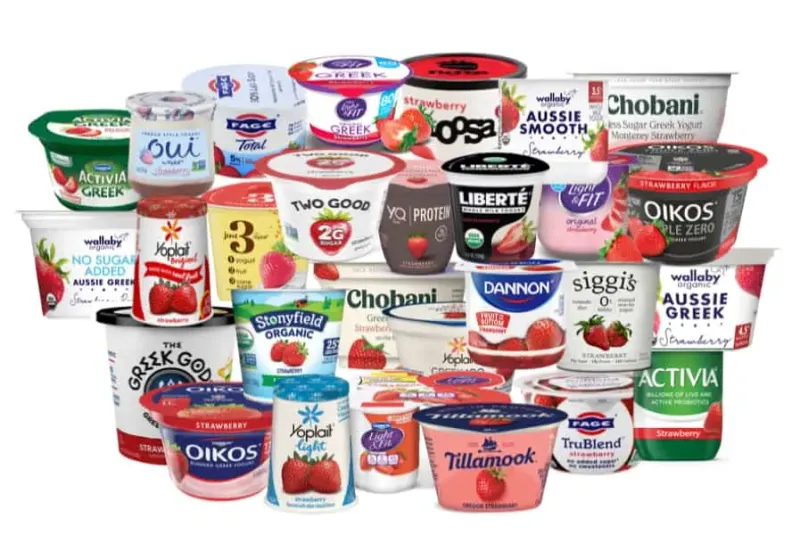
Flavored yogurt often poses as a gut-friendly option, but the reality might surprise you. Despite being a source of probiotics, the health benefits are often overshadowed by the high sugar content. Added sugars can negate any positive effects on gut health, leaving you with little more than a dessert masquerading as a healthy snack.
The fiber content in flavored yogurts is negligible, failing to provide the benefits associated with true prebiotics. When seeking gut health, opting for unflavored, plain yogurt might be a wiser choice.
Look beyond the colorful packaging, and choose wisely for your gut’s sake.
2. Fruit Juices with “Added Fiber”
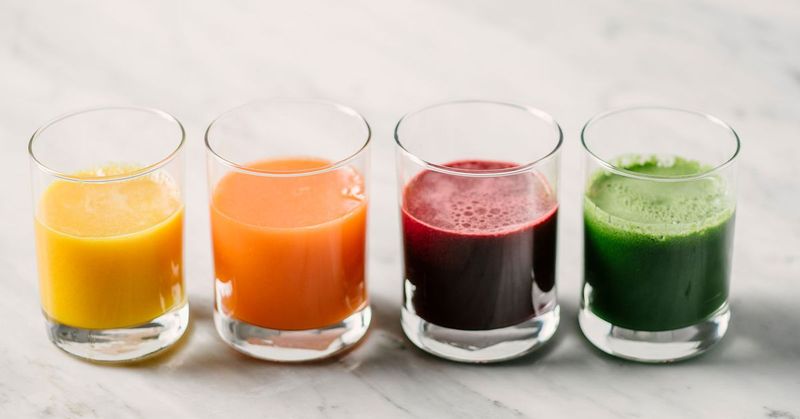
Fruit juices boasting added fiber can appear enticing, promising a quick health fix and a tasty refreshment. However, these juices often fall short in delivering meaningful prebiotic benefits.
The fiber added is minimal, often comprising inulin or chicory extract, which doesn’t adequately compensate for the high sugar levels. The lack of whole food structure further diminishes its prebiotic impact.
Opt for whole fruits instead, which provide natural fiber and essential nutrients. Beware of fruit juices that claim to support gut health—they may be more sugar than substance.
3. Prebiotic Sodas

Prebiotic sodas might sound like a health enthusiast’s dream, but they are more fizz than function. These beverages may contain trace amounts of fiber, yet their impact on gut health is minimal at best.
The concept of a soda being beneficial for your microbiome is appealing; however, the reality doesn’t match the marketing. While not harmful, these sodas fall short of being a reliable prebiotic source.
For those serious about gut health, it’s advisable to seek out genuine sources of prebiotics and view these sodas as occasional treats.
4. Commercial Oatmeal Packets
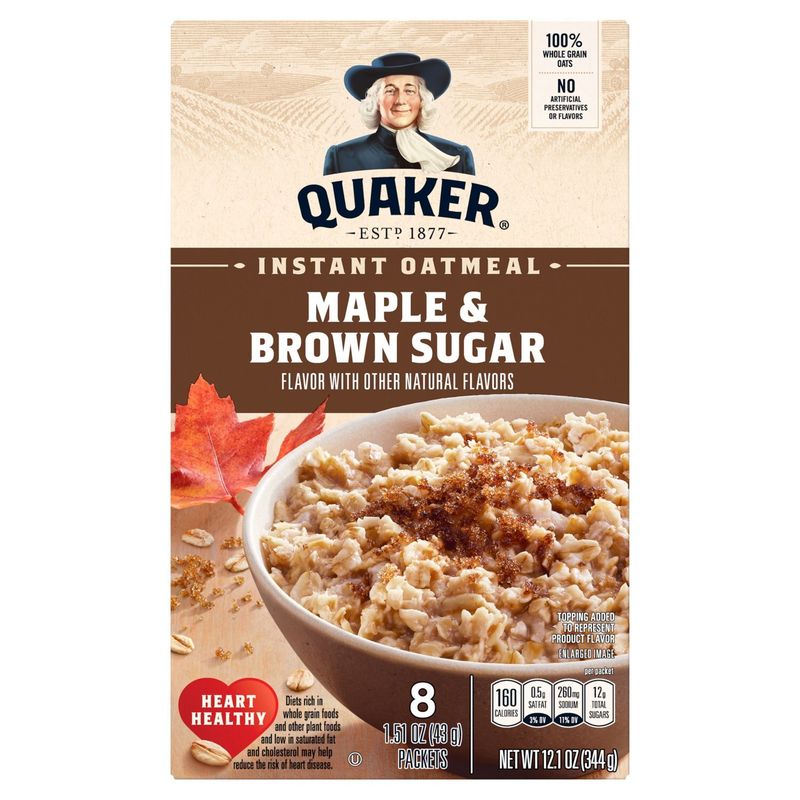
Commercial oatmeal packets, especially those with added flavors, can be deceiving. While oats are naturally a great source of fiber, these packets often contain high amounts of sugar and are low in true prebiotic benefits.
Unless you’re choosing steel-cut or unflavored old-fashioned oats, the convenience of instant packets may not be worth the trade-off. The added sugars can diminish the oats’ inherent benefits.
For a more gut-friendly option, consider preparing your own oatmeal using whole grains and adding natural sweeteners or fruits, ensuring you reap the full benefits of this wholesome grain.
5. Multigrain Bread (Without Whole Grains)
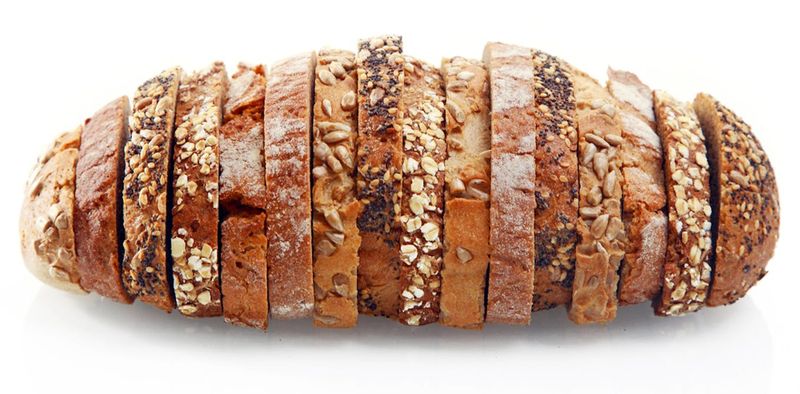
Multigrain bread often carries an aura of health—yet, appearances can be deceiving. Unless labeled as 100% whole grain, this bread may fall short in providing the fiber necessary for gut health.
For a bread to be truly beneficial, it should contain at least 3g of fiber per slice, which many multigrain options lack. These breads often consist of refined grains, offering little more than empty calories.
When selecting bread, it’s crucial to read labels carefully and opt for whole grain varieties that genuinely contribute to a balanced diet and healthy gut.
6. Granola Bars with Chicory Root
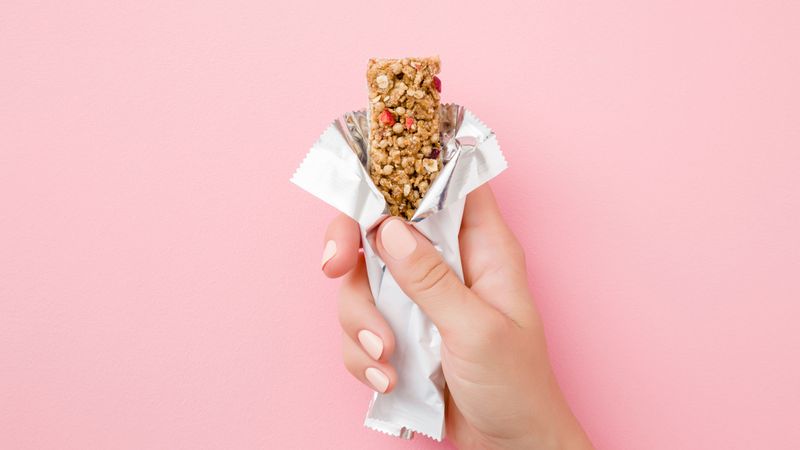
Granola bars infused with chicory root may promise prebiotic benefits, but the reality can be quite different. While chicory root is indeed a source of prebiotic fiber, the small quantities used in most bars don’t deliver substantial benefits.
These bars are often packed with added sugars and unhealthy oils, which overshadow the potential positives of chicory root. The convenience they offer comes at a cost to your gut health.
For a healthier alternative, consider making your own granola bars at home, where you can control the ingredients and maximize the prebiotic content.
7. “High-Fiber” Snack Chips
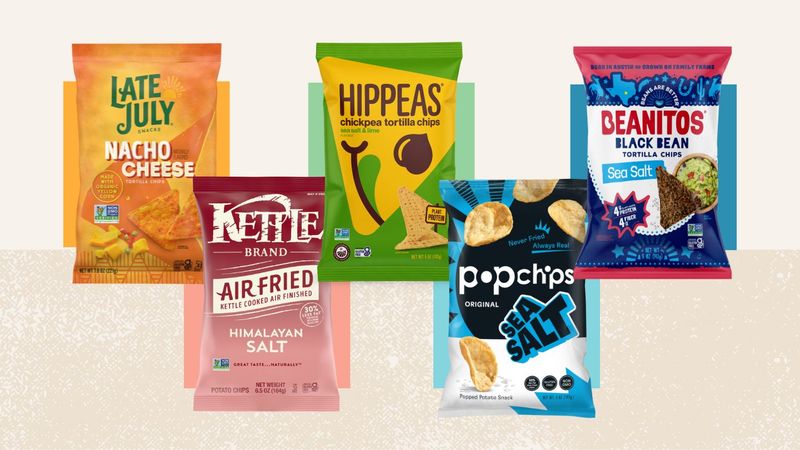
Snack chips labeled as “high-fiber” might catch your eye, but the truth is often less impressive. These chips generally contain isolated fiber extracts, derived from refined carbs, which don’t significantly improve your gut microbiome.
While the packaging might boast fiber content, these snacks are typically more about marketing than meaningful health benefits. The refining process strips away much of the nutritional value, leaving a product that’s closer to junk food than a gut-friendly snack.
For a nutritious snack, seek out whole-grain options or homemade alternatives with genuine fiber content.
8. Garlic

Garlic, with its pungent aroma, is more than just a kitchen staple; it’s a powerhouse of prebiotic fiber. Raw garlic is rich in inulin, a type of fiber that nourishes beneficial gut bacteria.
Incorporating garlic into your diet can enhance your gut health while adding a burst of flavor to dishes. Its versatility in cooking makes it easy to integrate into various recipes, from sautés to dressings.
This humble bulb’s gut-supporting properties highlight the importance of natural food sources in maintaining a balanced diet and robust microbiome.
9. Onions (Especially Raw)
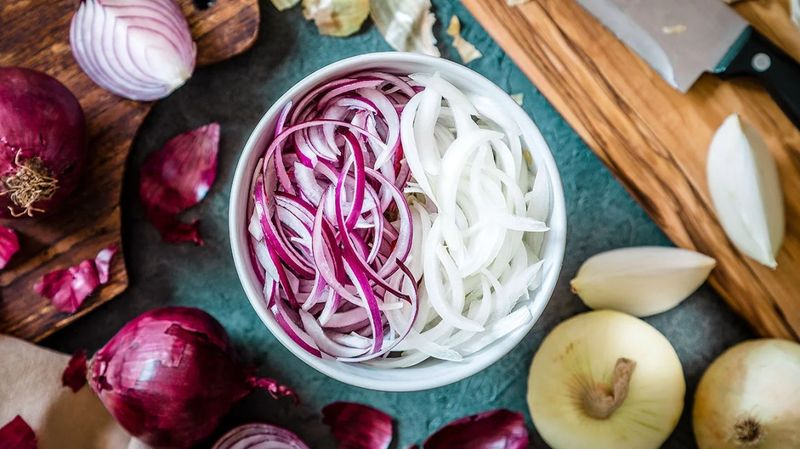
Onions, particularly when consumed raw, are an excellent source of fructooligosaccharides (FOS), a type of prebiotic fiber that supports gut flora. Their health benefits extend beyond gut health, also supporting immune function.
Adding raw onions to salads or salsas offers both flavor and nutritional benefits, aiding in maintaining a healthy microbiome.
While their sharp taste might not appeal to everyone, the health advantages are undeniable. Onions exemplify the power of raw, whole foods in promoting wellness and supporting digestive health.
10. Leeks
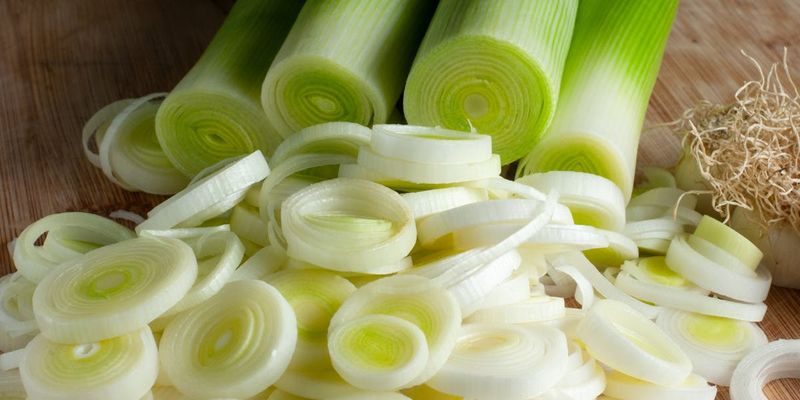
Leeks, cousins to garlic and onions, pack a substantial prebiotic punch. Rich in inulin, leeks are an excellent addition to soups, sautéed dishes, or roasted vegetables, enhancing both flavor and gut health.
Their mild taste allows them to easily blend into various culinary creations, making them a versatile ingredient in promoting digestive wellness.
Beyond their culinary uses, leeks serve as a reminder of the nutritional power found in everyday vegetables. Incorporating leeks into your meals can help maintain a balanced diet and support a thriving gut microbiome.
11. Asparagus
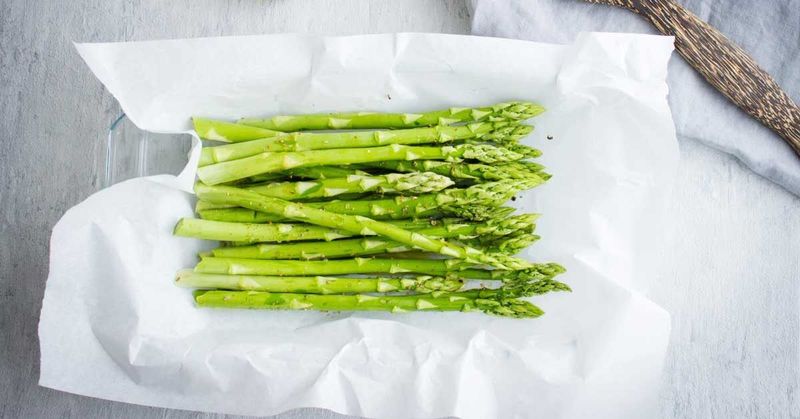
Asparagus is not just a springtime favorite; it’s a nutritional powerhouse packed with prebiotic fiber. Its rich fiber content supports gut health, making it a delicious and beneficial addition to any diet.
Whether grilled, steamed, or chopped into salads, asparagus offers versatility and health benefits in equal measure. Its natural prebiotic content aids in fostering a healthy gut environment.
This vegetable’s appeal lies not only in its flavor but also in its ability to promote digestive health, highlighting the benefits of incorporating green veggies into your diet.
12. Jerusalem Artichokes (Sunchokes)
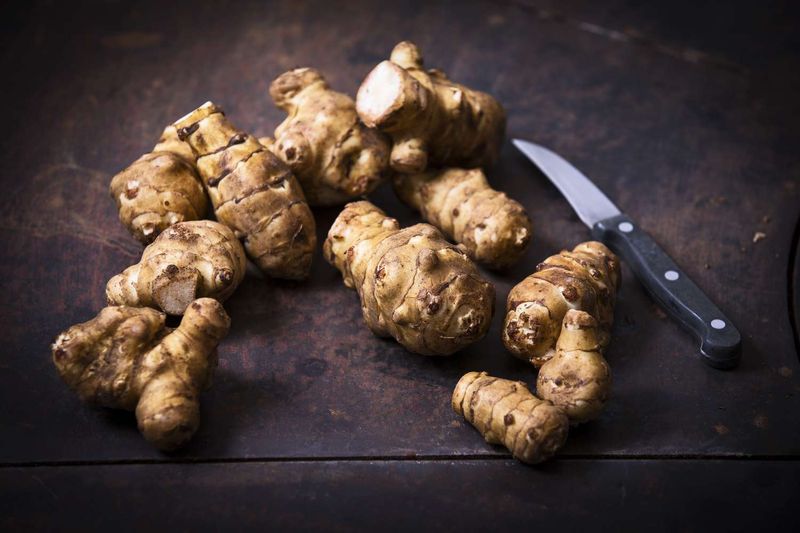
Jerusalem artichokes, also known as sunchokes, are among the richest whole-food sources of inulin, a potent prebiotic fiber. Their unique, nutty flavor makes them a versatile ingredient in various dishes.
Roasting or thinly slicing them into salads enhances their natural flavors while providing significant gut health benefits. These tubers exemplify the importance of natural, unprocessed foods in supporting a healthy digestive system.
Embracing sunchokes in your diet can lead to a happier gut, showcasing the value of lesser-known vegetables in promoting overall wellness.
13. Bananas (Especially Slightly Green)
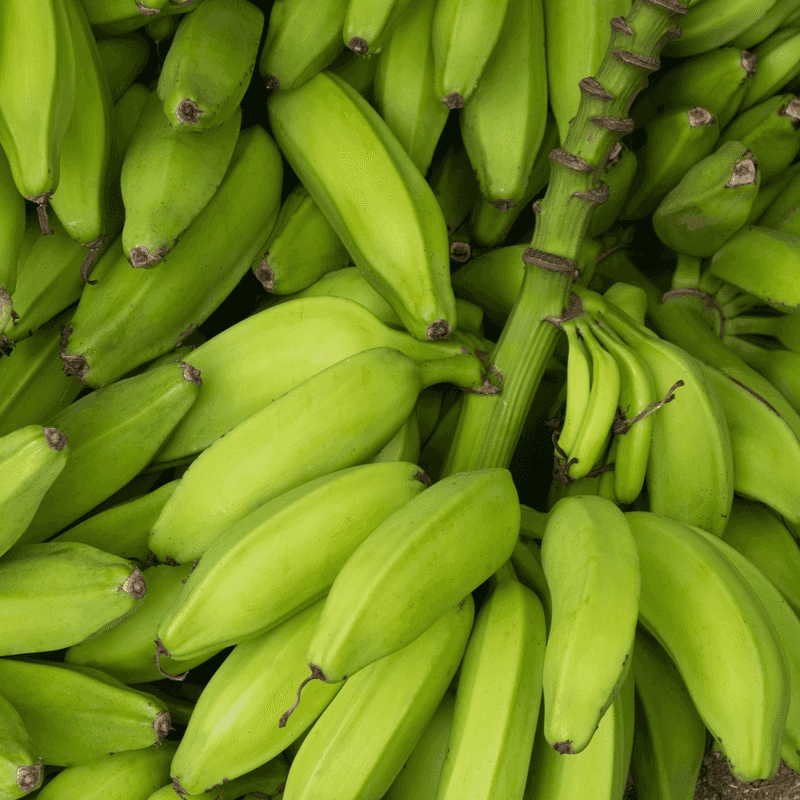
Bananas, particularly when slightly green, are a rich source of resistant starch, a type of prebiotic fiber that benefits gut health. This starch is less digestible, reaching the colon where it feeds beneficial bacteria.
Incorporating green bananas into your diet can promote a healthy microbiome while offering a convenient and nutritious snack option.
Their versatility allows them to be used in smoothies, baking, or simply eaten on their own, providing an easy way to boost your gut health naturally and deliciously.
14. Chicory Root
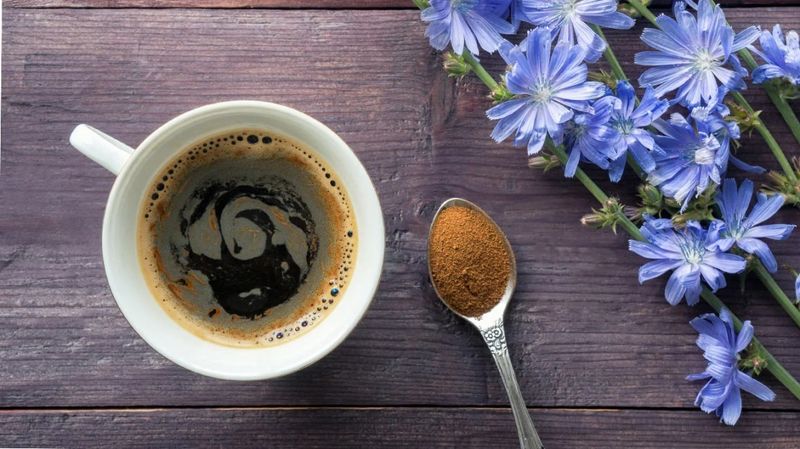
Chicory root is renowned for its high prebiotic fiber content, making it a top choice for those looking to enhance their gut health. Often found in powdered form, it can be easily added to smoothies, baked goods, or beverages.
Its slightly bitter taste can complement coffee or tea, offering a subtle health boost with every sip. Chicory root exemplifies how easily dietary habits can be adjusted to support digestive wellness.
Incorporating this earthy root into your meals or drinks can foster a healthier gut environment, showcasing its valuable role in a balanced diet.
15. Apples (With Skin On)
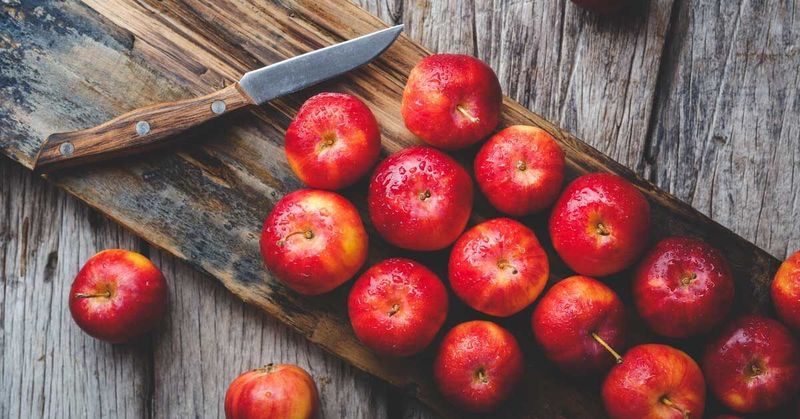
Apples, especially when consumed with the skin, provide a good source of pectin, a prebiotic fiber that enhances gut health. This fiber increases short-chain fatty acids in the gut, promoting a healthy microbiome.
Eating apples with the skin on not only maximizes their nutritional benefits but also adds a satisfying crunch to snacks and meals.
Their natural sweetness and versatility make them an easy addition to a variety of dishes, reinforcing the importance of whole foods in maintaining a healthy digestive system.
16. Oats (Steel-Cut or Rolled)
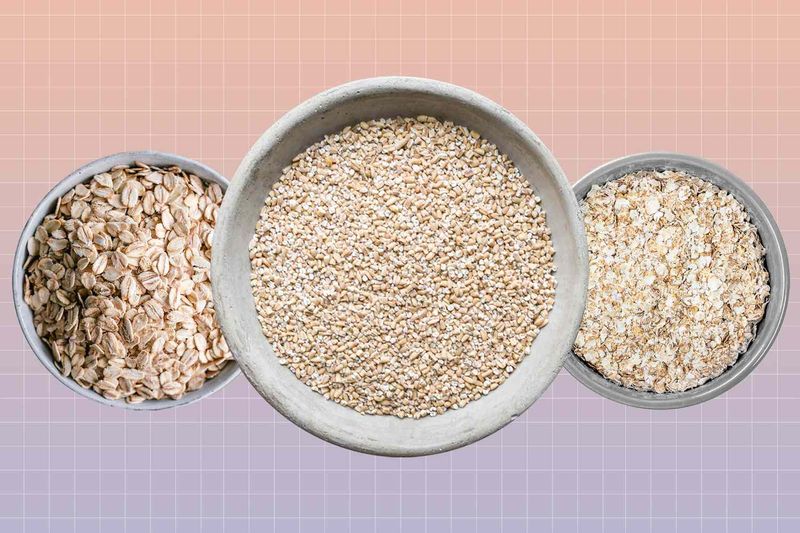
Whole oats, whether steel-cut or rolled, are excellent sources of beta-glucan and resistant starch, both of which fuel gut-friendly microbes. Their dense fiber content supports digestion and overall gut health.
These oats provide a hearty breakfast option, ensuring sustained energy and nutritional benefits throughout the day. The simple preparation makes them a convenient choice for a health-conscious diet.
Incorporating whole oats into your meals promotes a balanced diet and a thriving microbiome, underscoring the benefits of traditional whole grains in modern nutrition.
